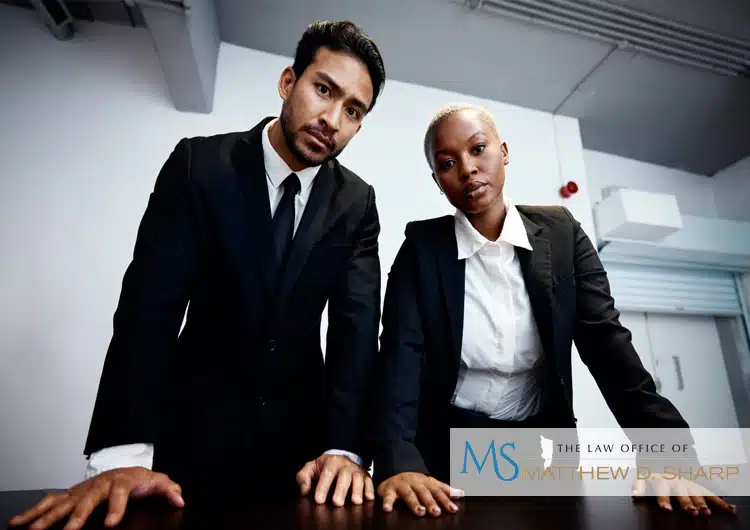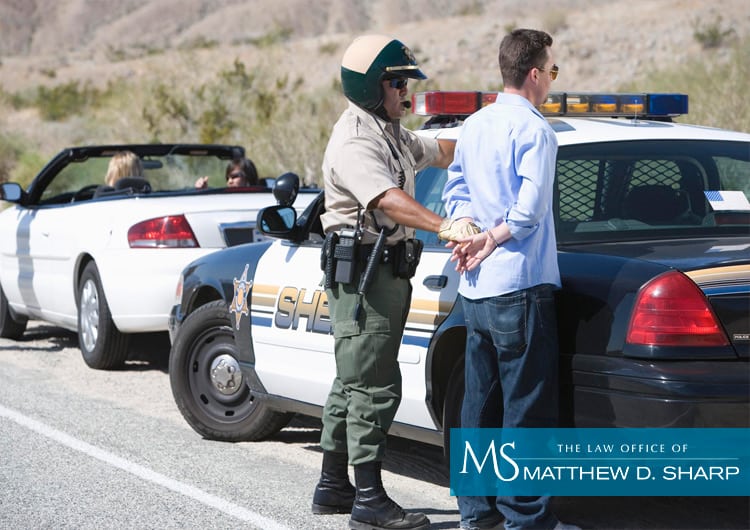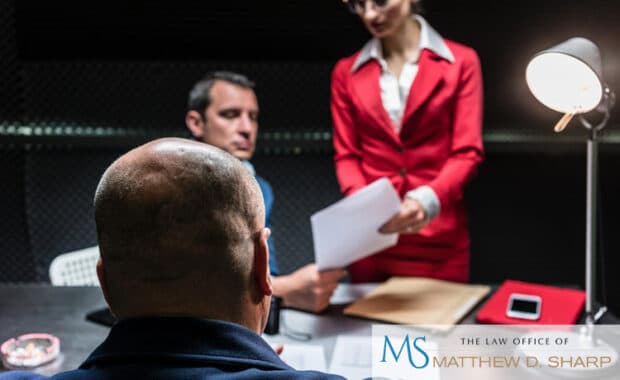Learn what you should and shouldn’t say when being questioned by police to protect your rights and stay safe in Texas
Getting pulled over or facing a police interrogation in Texas can be nerve-wracking, even for law-abiding citizens. Whether it’s for a minor traffic violation, like a broken taillight or a forgotten turn signal, or a more serious situation like a DWI arrest, knowing how to handle these encounters is crucial.
A simple mistake—like saying too much or acting impulsively—can escalate the situation or complicate your legal standing.
It’s essential to understand that the side of the road is not the place to argue your case; that’s what courtrooms are for. Similarly, during police interrogations, your words and actions can have lasting consequences.
This guide offers practical tips on navigating these situations, protecting your rights, and ensuring you make informed decisions.
What should you do first if being pulled over by the police?
If you’re driving and see police lights behind you, staying calm and composed is key. The first thing you should do is quickly but safely pull over to the right shoulder of the road as soon as possible.
If there is no safe place to pull over, it’s okay to pull into a better spot up ahead if there is one close by. However, you should always slow down and activate a turn signal so that the officer knows you’re trying to comply.
Once you pull over, it’s time to take a deep breath and try to calm your nerves. You should start by putting your car in park, rolling the driver’s side window down completely, and turning the car off. You should then turn on the interior light if it’s dark outside and place both hands on the steering wheel.
Never reach for a driver’s license or proof of insurance until the officer asks for them. An officer approaching a car who sees a driver digging through the glove box might get suspicious.
When the officer approaches your window, follow all of their instructions and speak in a courteous and respectful tone.
What Are Miranda Rights & How Do They Impact an Arrest in Houston?
Understand Texas laws around Miranda rights so you can protect yourself during an arrest.
Police stop FAQs: What to say and not say during a traffic stop
Can you ignore a cop talking to you?
No, you should not ignore a police officer who is talking to you. If an officer approaches you, it’s best to remain calm and acknowledge them politely. You are not required to answer all of their questions, but it’s essential to communicate your intent respectfully, such as by stating, “I wish to remain silent.”
Completely ignoring an officer can escalate the situation or be interpreted as non-cooperation, which might lead to further complications.
Do you need to identify yourself to the police?
Yes, in almost every situation, you have to identify yourself to the police if asked. In many states, including Texas, you’re legally required to provide your name and, if driving, your license, registration, and proof of insurance during a traffic stop. Refusing to identify yourself when required can lead to additional legal consequences.
However, you do have rights during a police stop. Beyond providing identification, you are not obligated to answer further questions, and you have the right to remain silent.
Should you say anything to the police?
It depends on the situation, but in general, you should provide only basic information such as your name, identification, and required documents if you’re driving. Beyond that, you’re not obligated to answer any other questions, and it’s often wise to exercise your right to say nothing.
Anything you say can be used against you, so if you’re worried that you might incriminate yourself or you feel like the officer is trying to trick you, it’s better to remain cautious and avoid volunteering any unnecessary information.
Why do cops ask, “Where are you coming from?”
When police ask you about where you’re coming from during a traffic stop or interaction, their goal is often to gather information that might help them assess the situation. These are some common reasons for this question:
- Establishing context. Officers may want to understand your recent activities to determine if they align with any reported incidents or suspicious behavior.
- Observing behavior. They might ask to see how you respond, including your tone, body language, or hesitancy, which could raise or reduce suspicion.
- Gathering evidence for probable cause. Police may be trying to gather information that could justify further questioning or investigation. For example, if you mention being at a bar or party, it might give them a reason to request a sobriety test or breathalyzer.
- Searching for inconsistencies. If your answer conflicts with other evidence or observations, it could give them a reason to probe further.
It’s important to remember that you’re not required to answer this or similar questions beyond providing your name and identification. Politely stating, “I’d prefer not to answer,” can help you maintain your rights while avoiding unnecessary conflict.
What should you say if a cop says, “Do you know why I pulled you over?”
If a police officer asks if you know why they pulled you over, never try to guess or admit to anything. Instead, respond politely with something like, “No, officer, could you tell me, please?” or “I’m not sure; could you let me know?”
By guessing, you could unintentionally admit to something the officer wasn’t even concerned about, which could create unnecessary issues or strengthen a case against you. It’s always best to let them tell you why they made you stop.
Why do cops ask if you know how fast you were going?
Police may ask you how fast you think you were going as a way of gathering evidence that could support a speeding ticket or other violations. If you admit to a specific speed, it can confirm the officer’s radar or speed-tracking device reading, which may not always be accurate and could otherwise be potentially challenged in court. By admitting to a speed, you risk strengthening their case against you.
Instead of guessing or admitting fault, respond politely with “I’m not sure” to avoid providing information that could be used against you while keeping the interaction respectful.
What should I say during a police interrogation?
It’s one thing to talk to the police on the side of the road, but it’s a different matter to talk to them in an interrogation room. Just like the advice for traffic stops, it’s crucial to stay calm when talking to the police.
It’s normal to be nervous in an interrogation. After all, being in a small room with armed officers who are asking tough questions can make anybody uneasy. However, it’s important to remember that defendants have rights in these scenarios. These include:
- The right to legal counsel
- The right to remain silent
If a person is taken into an interrogation room for questioning, the only thing they should say is “I would like to speak to my attorney, please.”
Trying to argue or outsmart law enforcement officers will not work and will probably make things worse. Anything that a person says in custody can be used against them in court. The best course of action is to request to speak with a Houston criminal defense attorney and then remain silent until they arrive.
How an attorney can help with a police interrogation
Having an attorney present during a police interrogation is critical for protecting your rights and ensuring you don’t unintentionally incriminate yourself. Once your attorney arrives, they’ll review the circumstances of your case and advise you on whether to provide a statement or remain silent. This decision will depend on the specific situation and the evidence law enforcement has against you.
Police officers are trained to gather information and secure confessions, often using methods that create psychological pressure or lead suspects into revealing more than they intend.
Attorneys understand the tactics officers use to elicit confessions or statements that can later be used as evidence. They’re skilled at countering these strategies, acting as a buffer between you and the police to ensure you’re not manipulated into saying something that could jeopardize your defense.
While they can’t stop charges from being filed, they play a crucial role in preventing you from making mistakes that could weaken your case.
Beyond the interrogation, an attorney helps build a strong legal defense by examining the evidence, challenging improper police procedures, and advocating for the best possible outcome in court. Their presence is a powerful reminder to law enforcement that your rights will not be overlooked.
Need legal help with a police interrogation in Houston?
Have you or a loved one recently been arrested or questioned by the police in Houston? Time is of the essence when charged with a crime.






